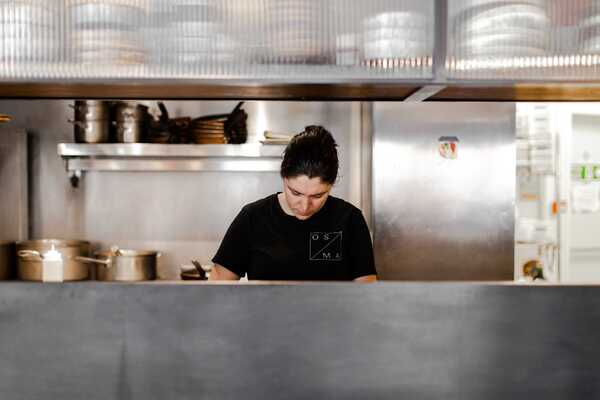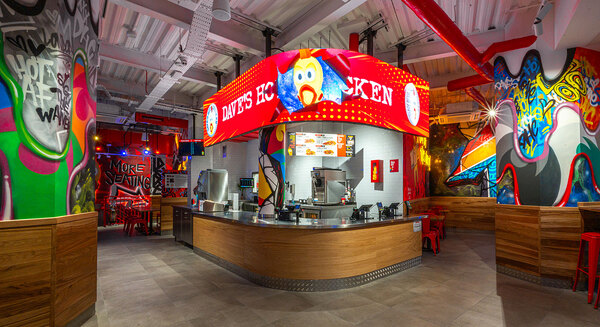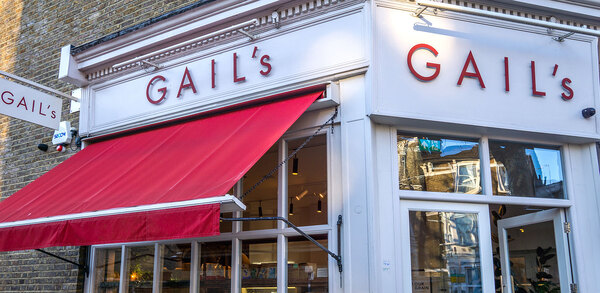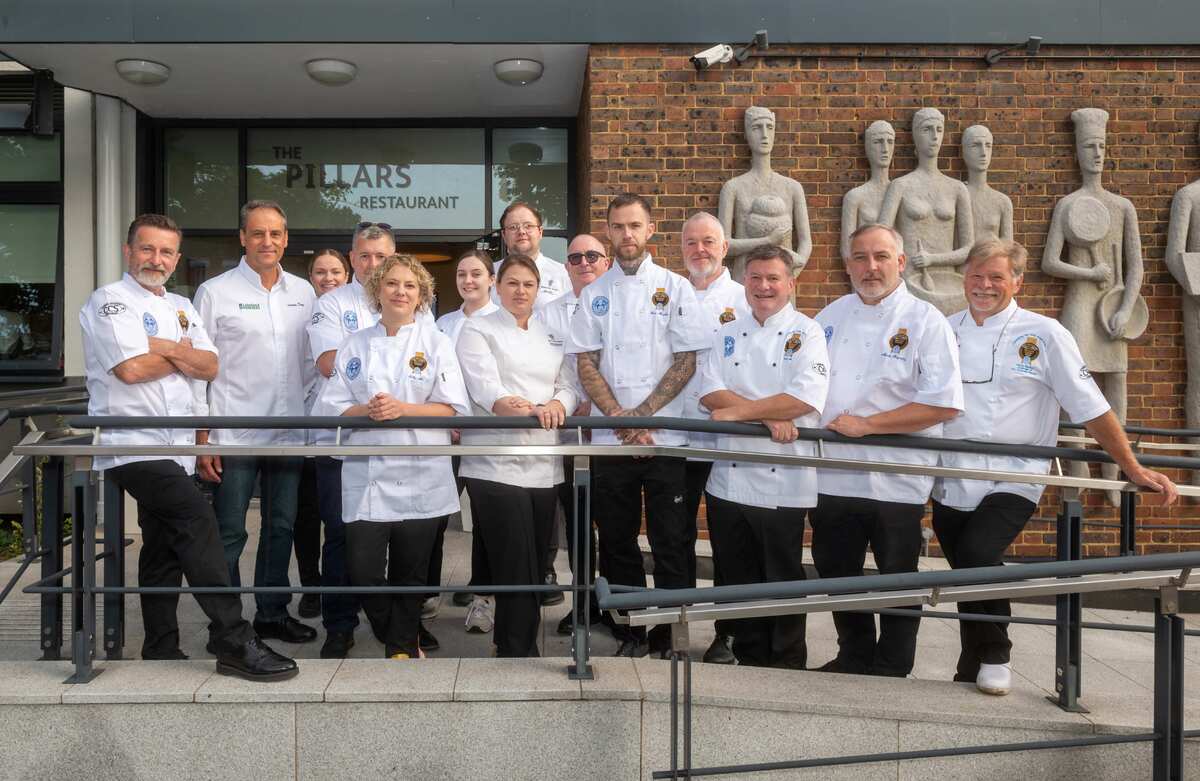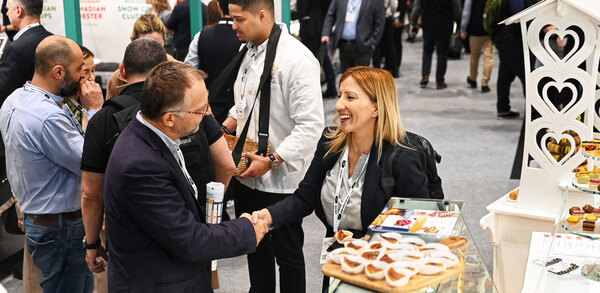Hospitality gender pay gap strides ahead of national average
Hospitality proved itself to have a "strong record of fairness" as gender pay gap revelations showed it to be strides ahead of other industries.
The median hourly rate paid to women was found to be 1% lower than that paid to men across the sector, far below the national average of 9.7%.
But, despite positive headline figures for the industry, many operators have acknowledged they have work to do, particularly regarding the representation of women in senior roles.
It is the first time companies with more than 250 employees have been forced to publish gender pay gap data, with 553 businesses within the industry filing.
âHospitality is a meritocratic sector, offering rapid career progression and it can be financially rewarding and incredibly enjoyable work. We will continue to endeavour to attract a diverse workforce into the many varied roles in the sector and hope that this favourable spotlight of the gender pay gap figures helps.â
Across restaurant operators, womenâs average hourly rate was the same as menâs, with 30% of those who filed reporting a 0% gap. However reports did range from women being paid 19% less to 23% more.
Among those reporting the largest pay gaps was Jamieâs Italian, where women are paid an average hourly rate 15% lower than men. The company put its results down to an âimbalance in gender splitâ.
Within its report the business said: âOur gender pay gap is primarily as a result of the large proportion of males working within the group which is typical within a hospitality industry.
âThis is evident with such departments as kitchen and bar being heavily driven by male applicants, which restricts the pool of employees available for us to recruit from.
âAll salaries/pay rates are banded within our restaurants regardless of gender, which ensures that there is an equal balance across all roles in terms of pay. Our gender pay and bonus gap is also primarily due to there being a greater proportion of men in our leadership team. However the percentage of females receiving a bonus is 0.9% higher.â
Hotel operators reported that women were paid 1% less than men on average, although 18.5% of those who filed revealed no disparity in pay between the genders. Reports ranged from women being paid an average hourly rate 49% lower than menâs to 11% more.
Meridian Hotel Operations reported a median gender pay gap of 49% in favour of men. The company is part of the Arora Group, which owns hotels including the InterContinental London at the O2 and Hilton at London Gatwick Airport.
A spokesperson said: âThe gap shown is not because of unequal pay for the same job. Each job has the same pay structure, regardless of gender. The disparity in figures is because of different rates of pay for different jobs where the roles are filled predominantly by one gender or the other, for example our housekeeping team is predominantly female and our maintenance team is predominantly male. We are a proud employer and are committed to the wellbeing of our highly valued teams.â
In contrast, the Royal Garden Hotel in Kensington, London, reported that women were paid a median average hourly rate 11% higher than men.
Contract caterers reported the biggest gender pay gap in the industry, with men paid an average hourly rate 13.3% higher than that received by women, although 11% of operators reported no difference.
Many of those reporting the largest pay gaps were school caterers, including City Catering Southampton, where the average hourly rate received by women was 51.2% lower than men, despite women making up 97% of its workforce.
Within its report, chief executive Rachel Hall said that since April 2017, when the data was taken, the company has reduced its pay gap by 16.5% due to the appointment of a female CEO and more women joining the leadership team to achieve 57% representation.
Hall added: âWe are committed to the diversity and inclusion agenda and will continue to address our gender pay gap every year; we recognise that there is more we can do. I look forward to reporting on our progress in a yearâs time.â
Other school caterers to reveal pay gaps included Pabulum, with a 46.7% gap in favour of men, Cucina, which reported a 42% gap and Accent Catering, which reported a 33.9% gap.
A spokesperson for Pabulum said: âAt 5 April last year, 83% of all staff were female and 17% of all staff were male. Our business is centred round a flexible working pattern consisting of term time only and a mixture of weekly hours â" this tends to suit those parents who need such flexibility.
"We welcome gender pay gap reporting and acknowledge that along with our industry peers there is a higher than average gap. There is more work needed to understand the areas of pay that may require development â" we will report on this in early 2019.â
Caterers Graysons Venues and Catering UK were found to pay women more than men, by 6.3% and 3% respectively.
Pub groups were found to have a 2.85% gender pay gap across the sector, with reports varying from 51% in favour of men at Ei Group (formerly Enterprise Inns) to 4.4% in womenâs favour at Be At One.
In its report Ei Group said: âWhile we are confident that we have equal pay for work of equal value, we recognise that there is a gender pay gap under the prescribed definition. This is primarily driven by more male employees occupying senior roles compared to female employees and the lower representation of males in the more junior positions.â
Jane Sunley, chief executive and founder of employee engagement consultancy Purple Cubed, said: âIncreased transparency around the gap will bring about much-needed change. Yet it is a challenge for hospitality and Iâm not sure weâll ever reach zero due to our legacy of large numbers of lower-paid female workers in, for example, education catering and housekeeping. The goal should be to create as much equality as possible â" all businesses should be addressing this issue as a priority.
âA gender balance in this sector makes sense, especially as women make up 70% of all travel buying decisions, two-thirds of travellers, and 54% of the affluent traveller market [Travel Weekly]. Women make up over 60% of the hospitality workforce yet only 10% of board positions are held by women [Aethos].
âNumerous studies prove that a more diverse workforce, particularly at senior levels, has financial benefits. Diverse boards are more varied in their thinking and decision-making and bring fresh perspectives, creativity and innovation to the table. They have better consumer understanding and leading to better decisions. Itâs not just about balancing the numbers, itâs about improving businesses performance.â
The Equality and Human Rights Commission has said it will take action against those companies that failed to report or that fail to take action to address the gap.
How to close the gap. Jane Sunley, chief executive and founder of employment engagement agency Purple Cubed, has given her advice for addressing a gender pay gap:
- Review your current status and set some goals around improving the balance
- Review your hiring processes to ensure all sexes have equal opportunities
- Review your internal development and career planning. For example, ensure that all team members have opportunities to discuss their aspirations and career goals (digital systems make this easy and employee-led)
- Make development available to all as and when they need it (just in time, bite-sized and on demand)
- Develop people at all levels through aspiring leadership programmes.
* This report was compiled using median hourly pay gap data
Hospitality companies urged to increase number of women in senior roles>>
Wake-up call: gender pay gap reporting â" is your business ready?>>




